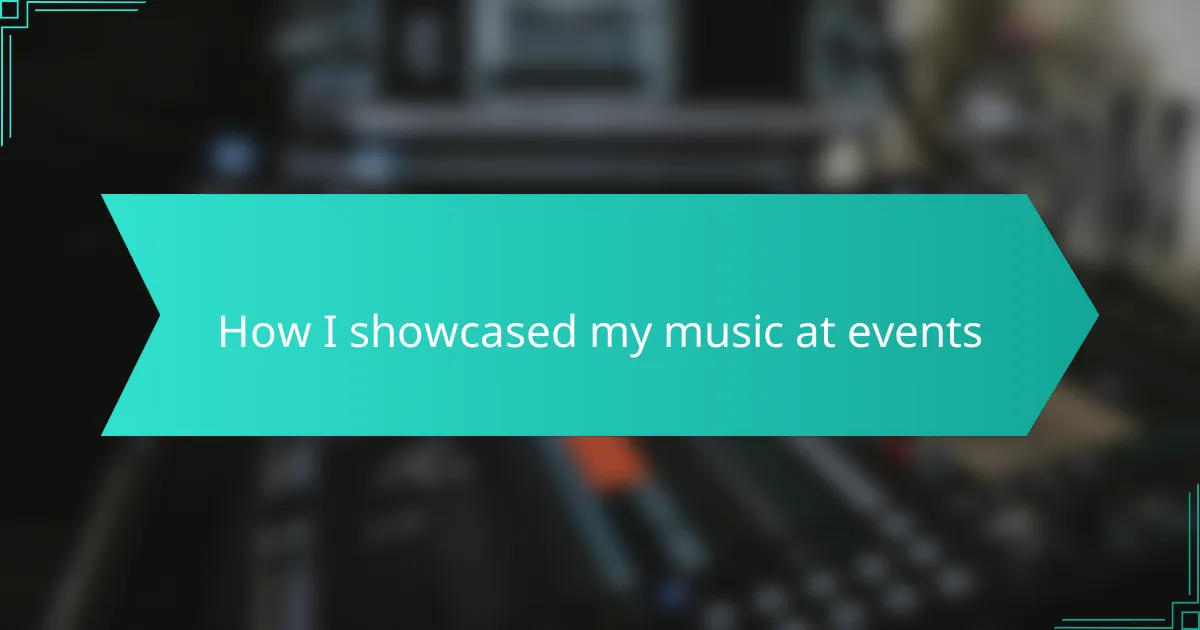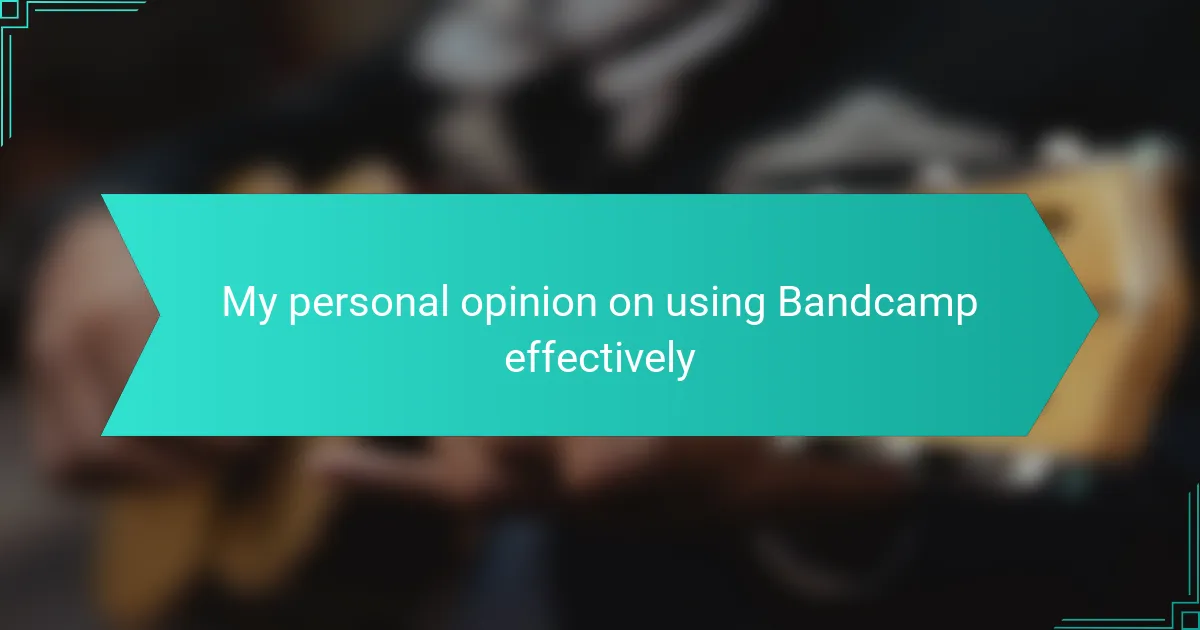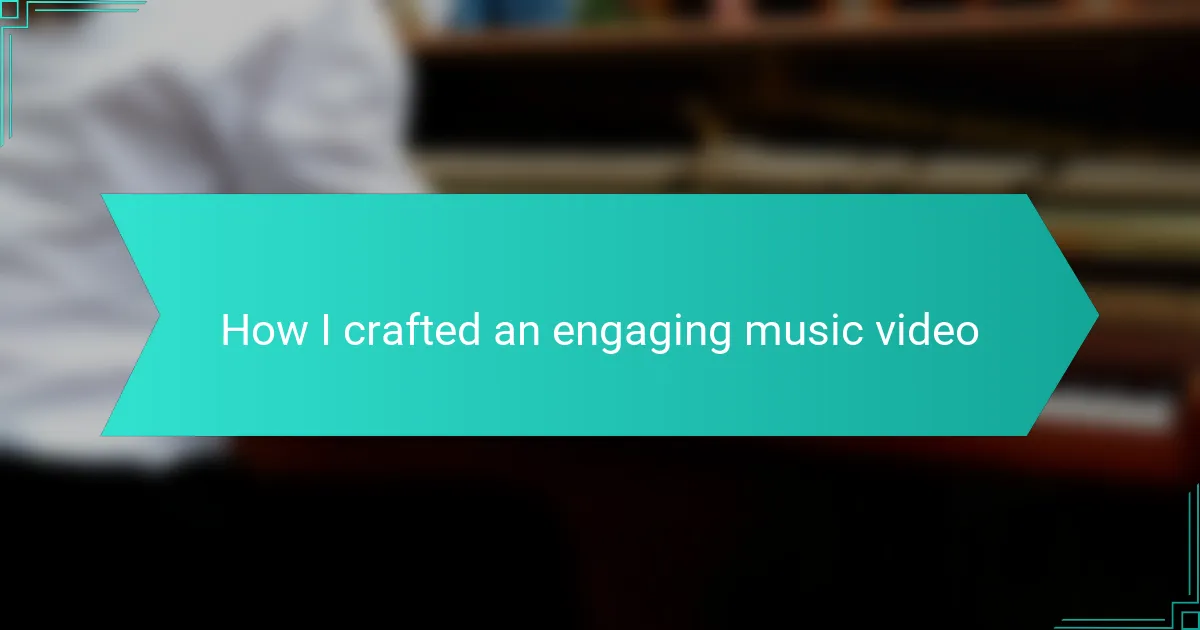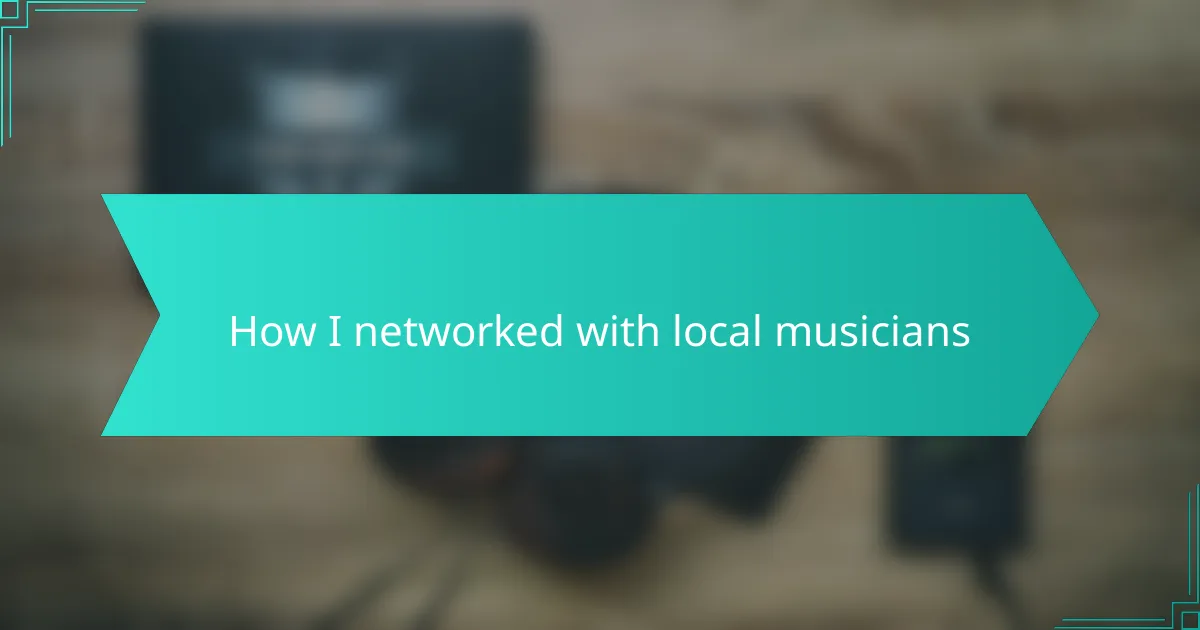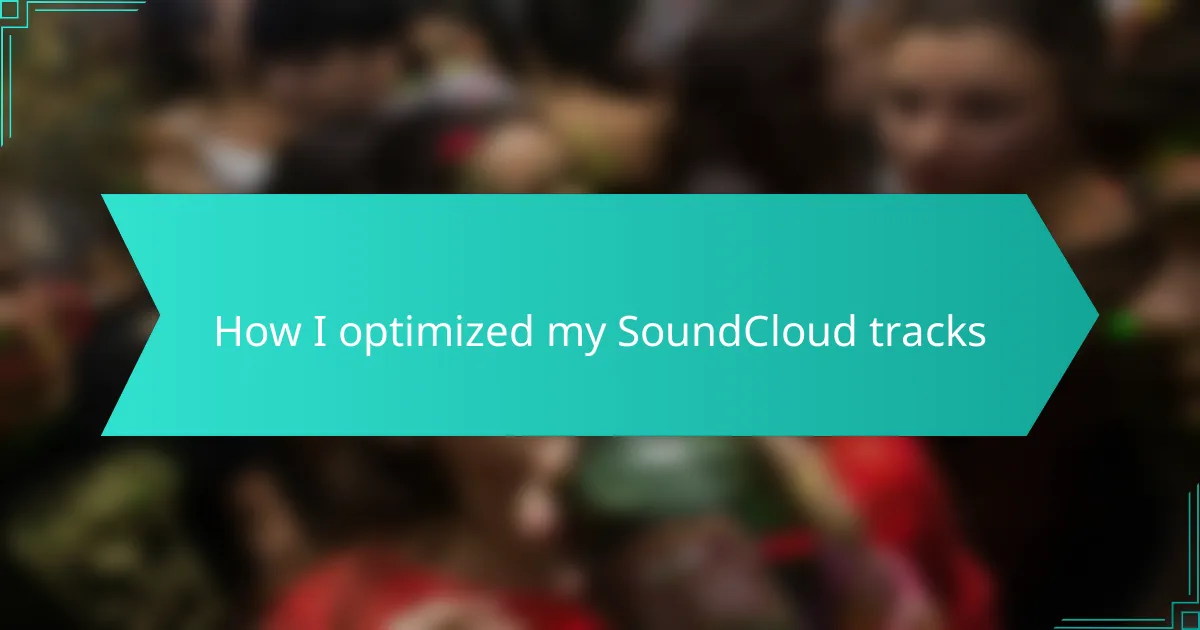Key takeaways
- A musician showcase offers artists a platform for exposure and networking with industry professionals and fans.
- Performing live builds connections, boosts confidence, and allows musicians to gauge audience reactions, essential for career growth.
- Choosing the right event type, such as open mics or festivals, significantly impacts the artist’s performance experience and audience engagement.
- Promoting music through social media, collaborations, and traditional methods can enhance audience turnout and engagement at events.
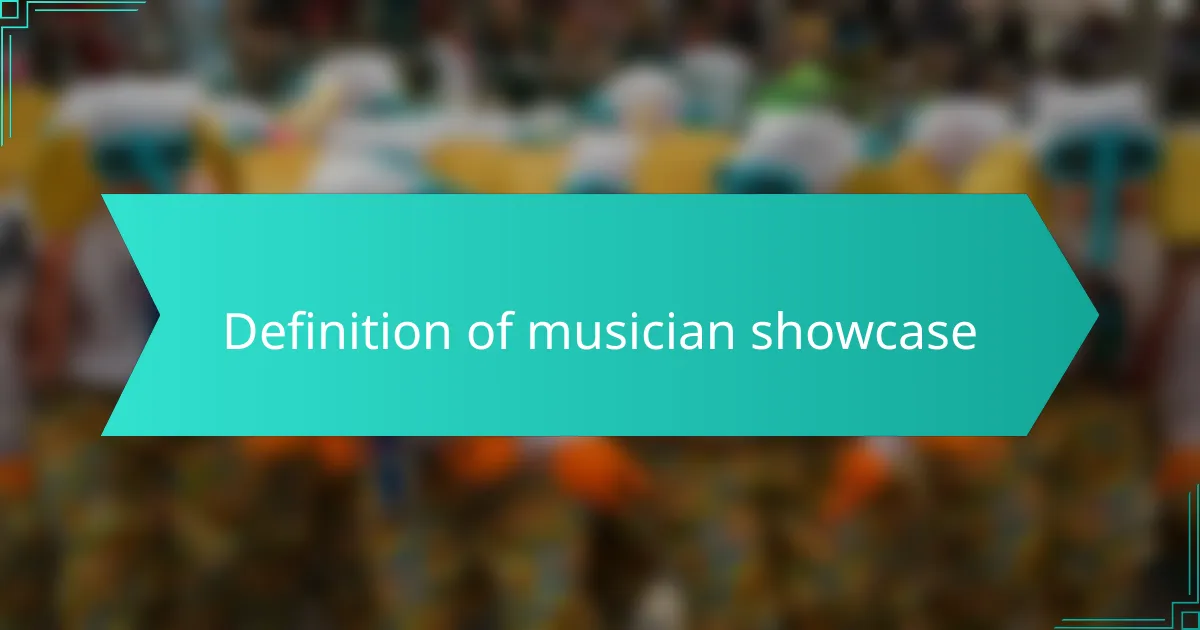
Definition of musician showcase
A musician showcase is an event where artists perform their music in front of an audience, often consisting of industry professionals, fans, and fellow musicians. These showcases serve as a platform for emerging talent to gain exposure and connect with key players in the music scene. Have you ever wondered what it feels like to share your art in such a vibrant atmosphere?
From my experience, participating in a showcase is both exhilarating and nerve-wracking. I remember standing backstage, heart racing, as I prepared to step into the spotlight. It’s a unique chance to present your music not just as a performer, but as a storyteller, sharing pieces of your journey with listeners who might resonate with your message.
In essence, musician showcases act as a bridge between an artist’s dreams and opportunities for growth in their career. They open doors to networking, feedback, and potential collaborations, helping musicians climb the ladder in a competitive industry. Isn’t it amazing how a single performance can pivot the trajectory of your musical journey?
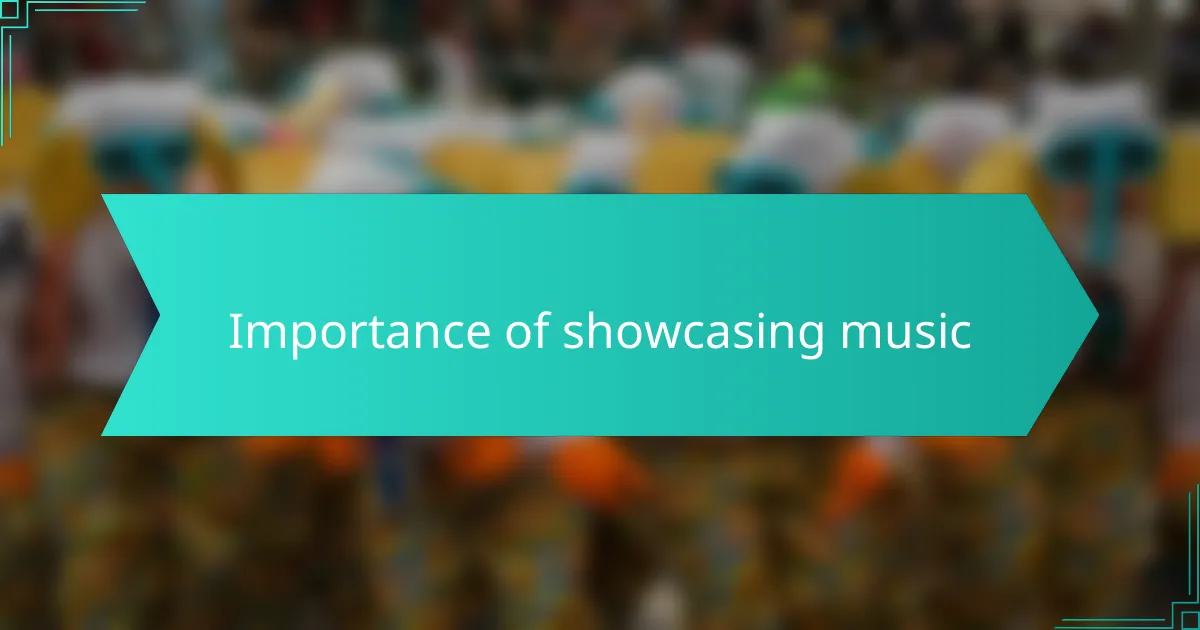
Importance of showcasing music
Showcasing music is crucial for any musician aiming to connect with their audience. I remember the first time I performed at a local event. The thrill of seeing people sway to my melodies made it clear that sharing my music creates a bond. It’s not just about playing notes; it’s about conveying emotions and stories that resonate with others.
When you showcase your music, you open doors to opportunities that could transform your career. Here are a few key reasons why it’s essential:
- Builds Connections: Performing live allows you to establish relationships with fans and other musicians.
- Increases Visibility: The more you showcase your work, the more exposure you gain, leading to potential gigs and collaborations.
- Gauges Audience Reaction: Live performances provide instant feedback, helping you understand what resonates with your listeners.
- Boosts Confidence: Each performance helps hone your craft and build self-assurance on stage.
- Creates Lasting Memories: Sharing your music with others creates unforgettable experiences for both you and your audience.
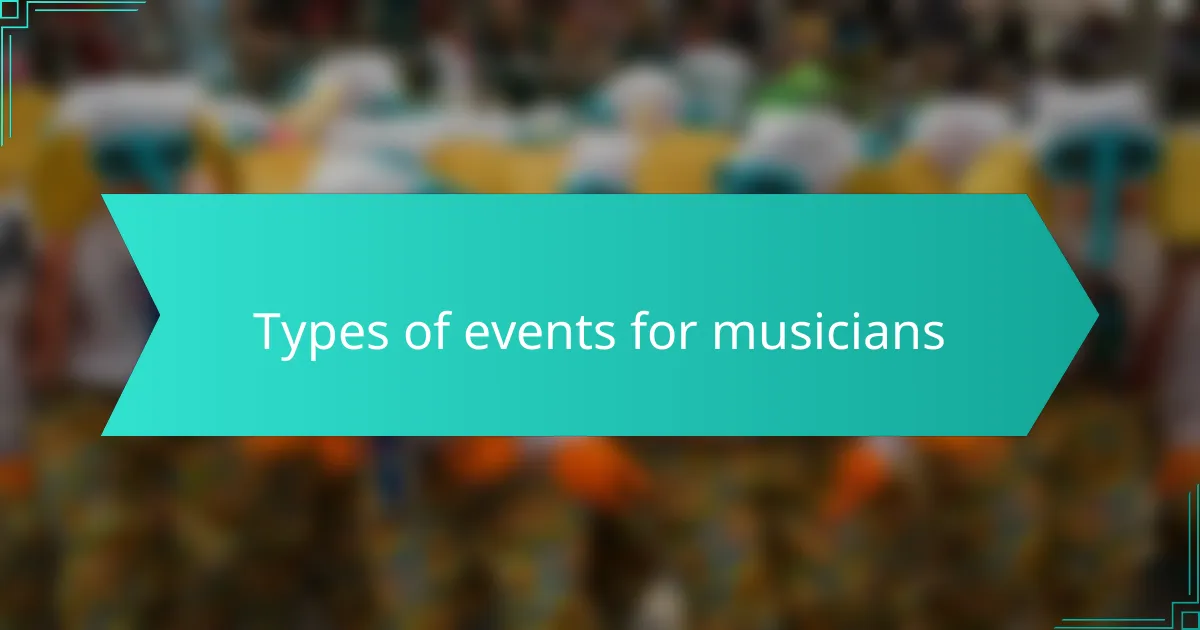
Types of events for musicians
When it comes to showcasing your music, the type of event can make all the difference. I’ve performed at various venues, such as open mics and festivals, and each has its own unique vibe and audience. For me, the intimacy of a small acoustic gig can create a deep connection with the audience, while larger festivals offer the thrill of reaching new fans.
Community events often feel like a celebration, where musicians and attendees unite to share their passions. Participating in these settings has allowed me to network and learn from fellow artists, turning what could be just another performance into a memorable experience. From my experience, choosing the right event type aligns with your artistic goals is so essential.
| Event Type | Pros |
|---|---|
| Open Mic | Casual atmosphere, immediate audience feedback |
| Festivals | Large audience, networking opportunities |
| Community Events | Engagement with local fans, personal connections |
| Weddings | Steady demand, emotional setting |
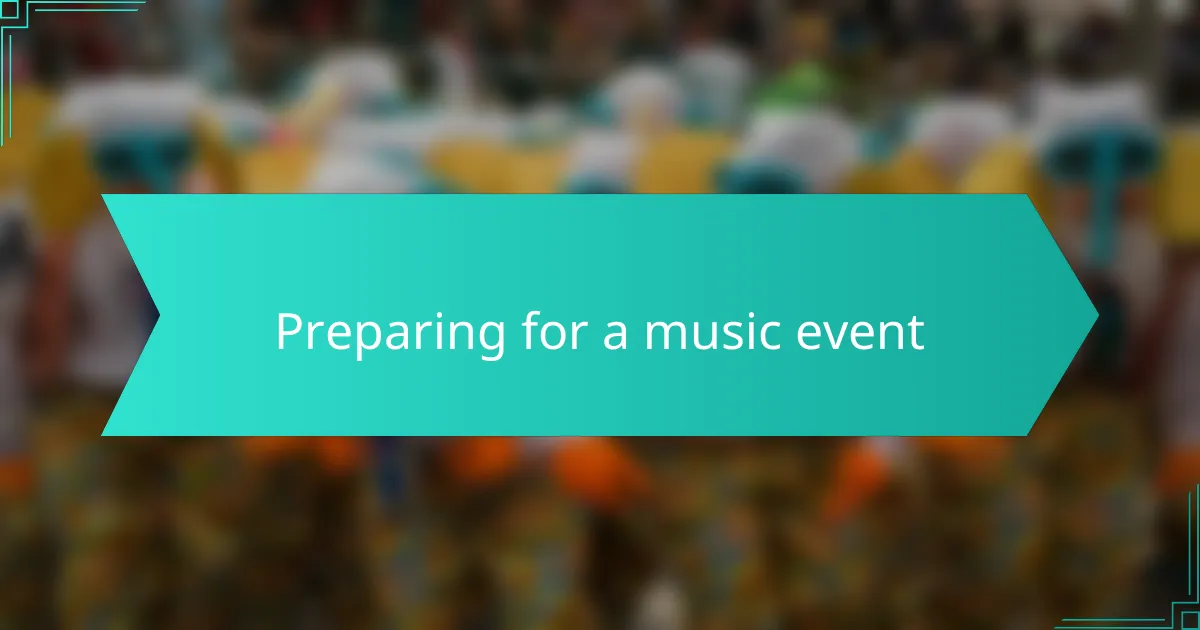
Preparing for a music event
Before you step onto the stage, preparation is key. I always spend time organizing my setlist to ensure it flows seamlessly and highlights my best work. There’s something special about selecting songs that tell a story or capture a particular mood. Do you ever think about how the order of your songs can influence the audience’s experience? I find that it makes a huge difference.
Rehearsing is another crucial aspect of getting ready for a music event. I recall countless nights perfecting my transitions between songs and refining my vocal delivery. Practicing not only builds muscle memory but also eases anxiety. You want to feel confident when you perform. So, I often visualize the audience’s positive reactions, which helps calm my nerves and fill me with excitement.
Lastly, I can’t stress enough the importance of logistics. Arriving early to check sound equipment and meet the venue staff has always helped set a positive tone for my performance. It’s those little details that make a big impact on the overall experience. Have you ever noticed how a well-organized event can elevate the entire atmosphere? In my experience, being prepared reflects in your performance and leaves a lasting impression on your audience.
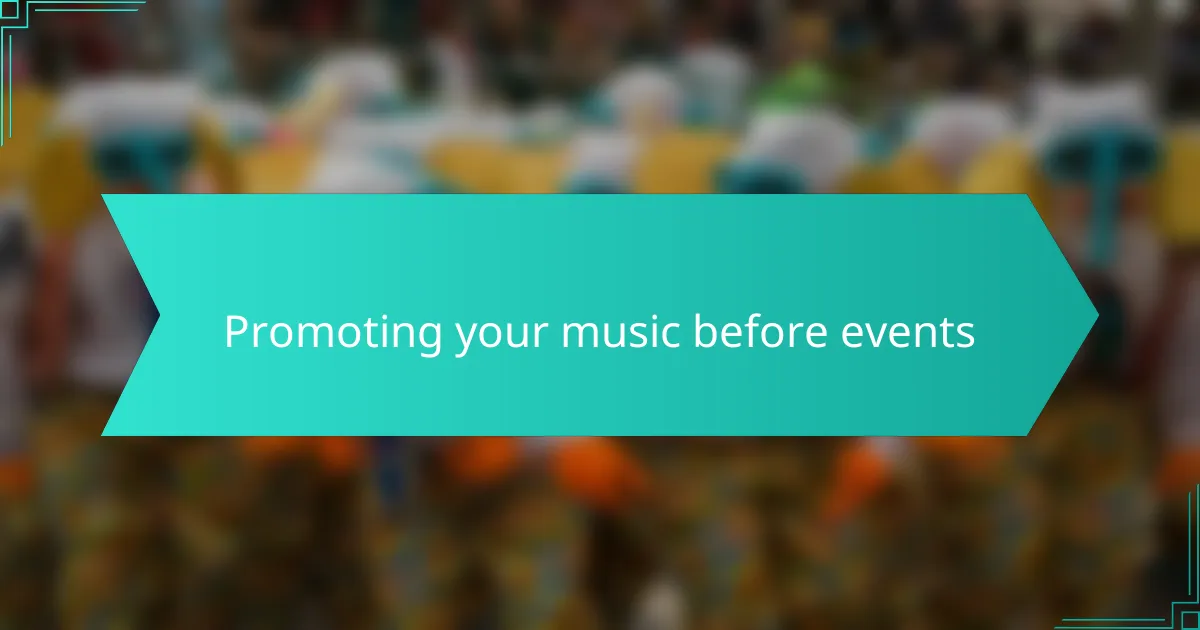
Promoting your music before events
I’ve learned that promoting your music before an event is just as important as the performance itself. In my early days, I would share snippets of my upcoming set on social media, building anticipation among my followers. It’s exciting to think about how a simple post can ignite interest and bring new people to your shows—do you remember the last time a sneak peek made you eager for something?
Another effective strategy is to collaborate with local influencers or music bloggers. When they share your work, it taps into their audience and creates a ripple effect. I remember partnering with a local blogger who loved my music; their post brought in a wave of new fans, and it felt amazing to see my music reaching beyond my immediate circle. Isn’t it rewarding to share your art with more people, making genuine connections along the way?
Don’t forget about traditional methods, like flyers or posters in community spaces. While digital promotion is essential, I’ve found that physical reminders can grab attention in a different way. I once distributed flyers at a local café where I performed. The excitement from those who recognized me was an encouraging reminder that every little effort counts. How do you balance online and offline promotion in your journey?
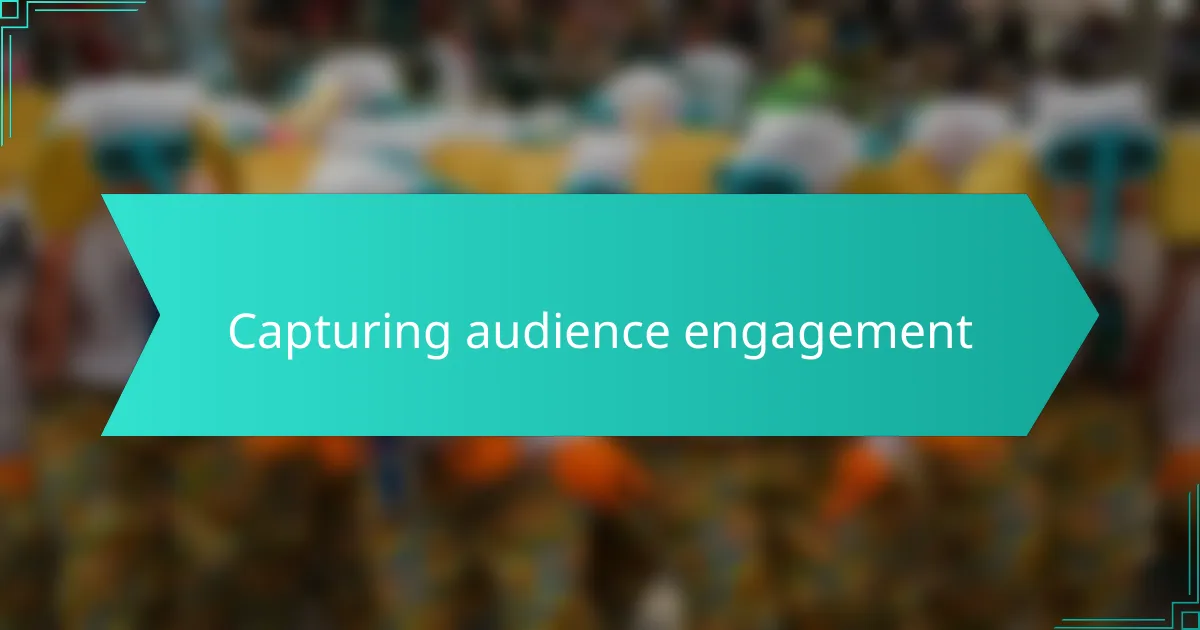
Capturing audience engagement
Capturing audience engagement is crucial for any musician looking to make a lasting impression. I remember performing at a local festival and noticing how the crowd reacted to my energy. When I interacted with the audience, asking them to sing along, I saw smiles and heard laughter that made the performance unforgettable. It’s those moments of connection that fuel my passion for music.
One effective way I’ve found to engage the audience is by sharing personal stories related to the songs. It creates a bond and allows listeners to feel a part of the experience. I’ve observed that when I open up about my journey or the meaning behind a song, people respond with even greater enthusiasm. They don’t just listen; they invest their emotions in the performance.
Here’s a simple comparison of different techniques for engaging an audience:
| Engagement Technique | Impact on Audience |
|---|---|
| Direct Interaction | Enhances connection and makes audience feel involved |
| Storytelling | Creates emotional ties and deepens listener investment |
| Visual Performance | Captures attention and adds dynamic energy to the show |
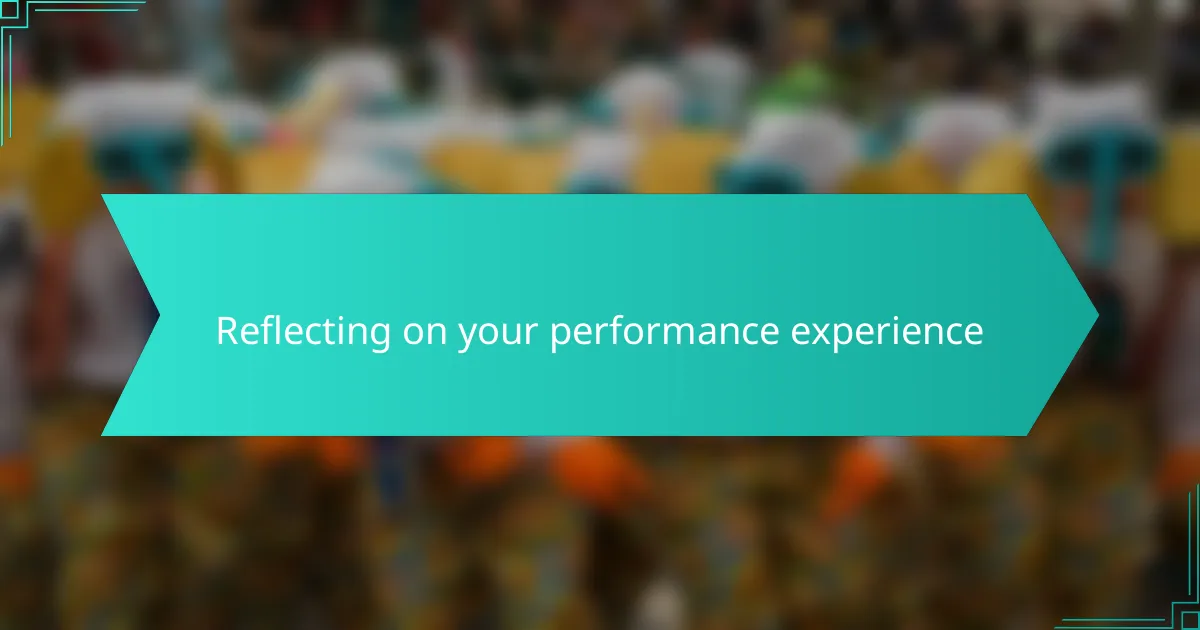
Reflecting on your performance experience
Reflecting on my performance experiences has been essential for my growth as a musician. After each gig, I take time to consider what went well and what I could improve. One memorable moment was my first open mic night—I was nervous, yet the thrill of sharing my original song with an audience was irreplaceable, pushing me to strive for more.
In comparing different performances, I’ve noticed that the size of the venue often shapes the energy. Smaller, intimate settings allow for a personal connection, while larger venues can elevate the excitement but might feel more daunting. Regardless of the setting, each experience has taught me something vital about my craft.
| Performance Type | Key Insights |
|---|---|
| Small Venue | Encourages personal connection with the audience |
| Large Venue | Creates a thrilling atmosphere, yet challenges intimacy |
